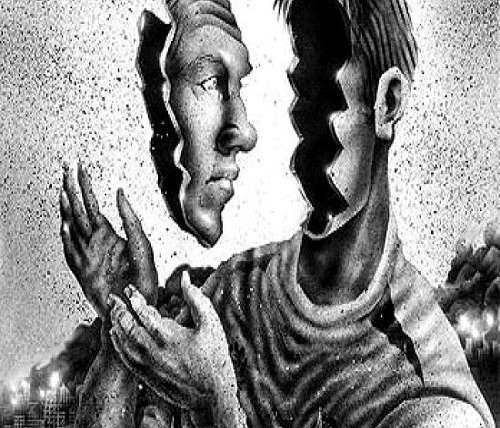Identifying & Addressing Out Basic Needs
Overview
This tile begs a question, what do we mean by basic?
Does it mean the needs we cannot live without fulfilling? If so, only air, food, and water will fit the bill, perhaps medicines if we extend the concept a little further. Or is it about something that is at the core, and of crucial importance, but life is possible without fulfilling it? In that case, sex and social life can be added to the list.
Does it mean the needs we cannot live without fulfilling?
This tile begs a question, what do we mean by basic? Does it mean the needs we cannot live without fulfilling? If so, only air, food, and water will fit the bill, perhaps medicines if we extend the concept a little further. Or is it about something that is at the core, and of crucial importance, but life is possible without fulfilling it? In that case, sex and social life can be added to the list.
It has been said no man is an island and humans are social animals. I have a slight problem with the second assertion. It implies that animals are not social beings, and they do not need to be social. I have not come across any animal that has not exhibited through their behavior a need to socialize with their own species and with other species. They need to socialize with the other sex even to procreate and interacting with their offspring is also a form of socialization.
If we look at the biological needs of humans, sex also gets included although one can live without sex for prolonged periods of time, although unhappily for the majority. What about the need for money, acquiring knowledge, being famous, wanting to be better than others, helping others, and sharing good things in life with them? These are universal needs and almost all human beings have them to a lesser or a greater degree.
Sigmund Freud described sex as the primary and most basic instinct. According to him, it was deeper than the desire for money, name, fame, religion, etc. He said we all are constantly trying to enhance our eligibility for the other sex even if there is no desire or a possibility to establish an alliance. An elderly person’s positive outlook toward an attractive youngster of the opposite gender reminds us of that. Even those who have chosen to remain single dress up smartly to look attractive. Catholic priests and Indian saints also wear nice expensive clothes and shave their chin, etc. Very few live like Diogenes, Socrates, or Ramana Maharishi.
Alfred Adler said that the most basic instinct was to become and feel superior to others.
Contrary to this, Alfred Adler said that the most basic instinct was to become and feel superior to others. Sexual eligibility can be one of the things to feel superior about, but there are several other ways of trying to be superior to our fellow beings. This seems to make sense, as everyone is trying to achieve something or the other to feel superior to others in some way. And if not comparing to others, wanting to better their own self. Those who are good-looking or have lots of money, feel superior to others by virtue of their good looks or money. Those who do not have money or good looks, feel superior based on their values in life such as honesty, education, being cultured, belonging to a particular religion, etc. In this process, they may be saying to themselves that rich people were dishonest, beauty was transitory and what they have got or achieved was longer lasting and more valuable.
Adler, however, talked about the quest for superiority not as a basic need but as a compensatory mechanism in response to our basic sense of inferiority. His theories originated from the fact that as a child he himself suffered a lot from health issues and lived with an inferiority complex for most of his early life. The fact that we have this body that is subject to all sorts of illnesses, and we are part of this world full of healthy and smart people, we are bound to feel inferior. Religion comes into play here offering a sense of superiority and invincibility and the promise of going to heaven. Most religions play on this sense of inferiority and offer you a sense of superiority and a promise of going to heaven just by belonging to that religion. This, like many other beliefs we hold, creates an irrational sense of superiority but it helps us until we can figure out how to address this sense of inferiority.
However, Jung did not agree with Adler and Freud and said that the need for spiritual growth was more basic than our need for superiority or sex. He said the first two are relevant in the early part of life, but one will experience a midlife crisis despite achieving reasonable sexual gratification and a relative superiority over others if they have not found spiritual connections within oneself. If that connection has been established one can escape the midlife crisis. According to spiritual traditions, self-actualization is the most important instinct, and one can sacrifice everything worldly for the sake of spiritual life.
Object relations theories
Moving on from this, object relations theories say that it is not pleasures of life or a sense of superiority or spirituality which is basic to our lives but a need to form connections/relationships with our fellow beings, calling them objects. One can sacrifice all sorts of gratifications and desires for superiority for the sake of their relationship.
Ronald Fairbairn, a Scottish Psychoanalyst, has described a little incident about a girl who was abused by her parents and the social services were trying to find a foster placement for her. When the social worker told her that they were trying to find very good parents for her as her own parents were not treating her well, she said to the social worker, no that’s not true, my mother is not bad, it is me who is bad and that is why she is treating me like that. The object relations theory says that the need for relationships is much deeper than the need for personal happiness, and that is why people choose to stay in unhappy relationships rather than seek happiness.
Abraham Maslow tried explaining all these needs in terms of a hierarchy under the following two categories inside a pyramid.
- Deficiency needs from bottom to top are
- Physiological needs
- Safety needs
- Belonging and love needs
- Esteem needs
- Cognitive needs
- Growth needs
- Aesthetic needs
- Self-actualization
- Transcendence
The above should not be seen as applying to all, as some of these may be non-issues for some, or perhaps they have suppressed those needs. It may also be that they will never be in a situation where they will be forced to confront that need as they are so caught up with the other needs that they cannot even think of anything else.
Depending upon the environment they are brought up in, or their rebellious attitude to that environment, they deny themselves the need for one or more of the above needs i.e., sex, relationships, name, fame, money, etc., only to realize several decades later that this is something they should not have ignored, for some it’s too late then.
I have come across people who lived a self-centered life focussed on themselves and their immediate family all their life, and in old age have this urge to do something for society. It may also be that people want to donate their organs or blood as a form of charity or provide physical help to others in need if they were not able to help others financially, and vice versa.
There are examples of famous painters who started painting nudes only late in life when they thought it would be inauthentic not to give expression to something that had been lurking underneath their conscious minds for several decades, throwing caution to the wind.
There are also examples of famous film personalities who suppressed their spiritual needs when active in the film industry, but a time came when they decided to throw away the glitter of the tinsel town to adopt a quiet, simple, and solitary spiritual life in remote parts of the world away from the gaze of paparazzi.
Conclusion
Now coming to the title, after identifying our needs we need to ask ourselves which are our own needs, and which are adopted ones. There is also a problem of false perceptions of our own needs.
Let us analyze this further, which part of our Being identifies our needs? without exception, it is our brains or cerebral cortex. At times there is a discord between what the mind perceives/wants and what the body needs. This tussle goes on throughout life.
If the mind wins the needs of the body are pushed aside and one remains aware of it, or they are pushed down into the unconscious mind which makes it difficult for the individual to even acknowledge that a need has been denied. It may surface several decades later with a force that changes one’s behavior. One may think they do not need to have children, money or marriage or a particular relationship, spiritual life, etc. It may just be a denial of a need rather than an absence of it.
How to know if I am suppressing a need or if it was not there, to begin with? There are some tell-tale signs that can be seen in your dreams, your jealousy of certain people who are satisfying those needs, keeping the hope of a change in circumstances that will increase the chances of fulfilling those needs alive, wanting to do things in a rigid way which is just the opposite of what the need wants you to do (called reaction formation), avoiding certain people or topics of discussion that remind you of your unfulfilled needs, being generally unhappy and unfulfilled in life, etc.
Once identified, the next big hurdle is how to address them. And the biggest obstacle is the thought – what will people say? Wanting to fulfill a need that you have ignored for so long can also be seen as a personal failure. There will be doubts in one’s mind about the chances of success in the new venture and worries that the novel approach can cause more damage. A change in behavior calls for courage and overcoming worries about what people will say.
In general, people are less critical of us than we imagine them to be, they have seen the world and it does not matter to them what you think or do, unless you are a politician, and they belong to the opposition party. In that case, you are in for a character assassination even if you are mindful of what they think of you all the time and do not do anything to give them a reason to think bad about you.
Staying connected with the deeper reaches of your being can make you aware of your goals and guide you in the right direction. It can also be a yardstick of your success and help you to enjoy the fruits of your labor.
This tile begs a question, what do we mean by basic? Does it mean the needs we cannot live without fulfilling? If so, only air, food, and water will fit the bill, perhaps medicines if we extend the concept a little further. Or is it about something that is at the core, and of crucial importance, but life is possible without fulfilling it? In that case, sex and social life can be added to the list.
It has been said no man is an island and humans are social animals. I have a slight problem with the second assertion. It implies that animals are not social beings, and they do not need to be social. I have not come across any animal that has not exhibited through their behavior a need to socialize with their own species and with other species. They need to socialize with the other sex even to procreate and interacting with their offspring is also a form of socialization.
If we look at the biological needs of humans, sex also gets included although one can live without sex for prolonged periods of time, although unhappily for the majority. What about the need for money, acquiring knowledge, being famous, wanting to be better than others, helping others, and sharing good things in life with them? These are universal needs and almost all human beings have them to a lesser or a greater degree.
Sigmund Freud described sex as the primary and most basic instinct. According to him, it was deeper than the desire for money, name, fame, religion, etc. He said we all are constantly trying to enhance our eligibility for the other sex even if there is no desire or a possibility to establish an alliance. An elderly person’s positive outlook toward an attractive youngster of the opposite gender reminds us of that. Even those who have chosen to remain single dress up smartly to look attractive. Catholic priests and Indian saints also wear nice expensive clothes and shave their chin, etc. Very few live like Diogenes, Socrates, or Ramana Maharishi.
Alfred Adler said that the most basic instinct was to become and feel superior to others.
Contrary to this, Alfred Adler said that the most basic instinct was to become and feel superior to others. Sexual eligibility can be one of the things to feel superior about, but there are several other ways of trying to be superior to our fellow beings. This seems to make sense, as everyone is trying to achieve something or the other to feel superior to others in some way. And if not comparing to others, wanting to better their own self. Those who are good-looking or have lots of money, feel superior to others by virtue of their good looks or money. Those who do not have money or good looks, feel superior based on their values in life such as honesty, education, being cultured, belonging to a particular religion, etc. In this process, they may be saying to themselves that rich people were dishonest, beauty was transitory and what they have got or achieved was longer lasting and more valuable.
Adler, however, talked about the quest for superiority not as a basic need but as a compensatory mechanism in response to our basic sense of inferiority. His theories originated from the fact that as a child he himself suffered a lot from health issues and lived with an inferiority complex for most of his early life. The fact that we have this body that is subject to all sorts of illnesses, and we are part of this world full of healthy and smart people, we are bound to feel inferior. Religion comes into play here offering a sense of superiority and invincibility and the promise of going to heaven. Most religions play on this sense of inferiority and offer you a sense of superiority and a promise of going to heaven just by belonging to that religion. This, like many other beliefs we hold, creates an irrational sense of superiority but it helps us until we can figure out how to address this sense of inferiority.
However, Jung did not agree with Adler and Freud and said that the need for spiritual growth was more basic than our need for superiority or sex. He said the first two are relevant in the early part of life, but one will experience a midlife crisis despite achieving reasonable sexual gratification and a relative superiority over others if they have not found spiritual connections within oneself. If that connection has been established one can escape the midlife crisis. According to spiritual traditions, self-actualization is the most important instinct, and one can sacrifice everything worldly for the sake of spiritual life.
Object relations theories
Moving on from this, object relations theories say that it is not pleasures of life or a sense of superiority or spirituality which is basic to our lives but a need to form connections/relationships with our fellow beings, calling them objects. One can sacrifice all sorts of gratifications and desires for superiority for the sake of their relationship.
Ronald Fairbairn, a Scottish Psychoanalyst, has described a little incident about a girl who was abused by her parents and the social services were trying to find a foster placement for her. When the social worker told her that they were trying to find very good parents for her as her own parents were not treating her well, she said to the social worker, no that’s not true, my mother is not bad, it is me who is bad and that is why she is treating me like that. The object relations theory says that the need for relationships is much deeper than the need for personal happiness, and that is why people choose to stay in unhappy relationships rather than seek happiness.
Abraham Maslow tried explaining all these needs in terms of a hierarchy under the following two categories inside a pyramid.
- Deficiency needs from bottom to top are
- Physiological needs
- Safety needs
- Belonging and love needs
- Esteem needs
- Cognitive needs
- Growth needs
- Aesthetic needs
- Self-actualization
- Transcendence
The above should not be seen as applying to all, as some of these may be non-issues for some, or perhaps they have suppressed those needs. It may also be that they will never be in a situation where they will be forced to confront that need as they are so caught up with the other needs that they cannot even think of anything else.
Depending upon the environment they are brought up in, or their rebellious attitude to that environment, they deny themselves the need for one or more of the above needs i.e., sex, relationships, name, fame, money, etc., only to realize several decades later that this is something they should not have ignored, for some it’s too late then.
I have come across people who lived a self-centered life focussed on themselves and their immediate family all their life, and in old age have this urge to do something for society. It may also be that people want to donate their organs or blood as a form of charity or provide physical help to others in need if they were not able to help others financially, and vice versa.
There are examples of famous painters who started painting nudes only late in life when they thought it would be inauthentic not to give expression to something that had been lurking underneath their conscious minds for several decades, throwing caution to the wind.
There are also examples of famous film personalities who suppressed their spiritual needs when active in the film industry, but a time came when they decided to throw away the glitter of the tinsel town to adopt a quiet, simple, and solitary spiritual life in remote parts of the world away from the gaze of paparazzi.
Conclusion
Now coming to the title, after identifying our needs we need to ask ourselves which are our own needs, and which are adopted ones. There is also a problem of false perceptions of our own needs.
Let us analyze this further, which part of our Being identifies our needs? without exception, it is our brains or cerebral cortex. At times there is a discord between what the mind perceives/wants and what the body needs. This tussle goes on throughout life.
If the mind wins the needs of the body are pushed aside and one remains aware of it, or they are pushed down into the unconscious mind which makes it difficult for the individual to even acknowledge that a need has been denied. It may surface several decades later with a force that changes one’s behavior. One may think they do not need to have children, money or marriage or a particular relationship, spiritual life, etc. It may just be a denial of a need rather than an absence of it.
How to know if I am suppressing a need or if it was not there, to begin with? There are some tell-tale signs that can be seen in your dreams, your jealousy of certain people who are satisfying those needs, keeping the hope of a change in circumstances that will increase the chances of fulfilling those needs alive, wanting to do things in a rigid way which is just the opposite of what the need wants you to do (called reaction formation), avoiding certain people or topics of discussion that remind you of your unfulfilled needs, being generally unhappy and unfulfilled in life, etc.
Once identified, the next big hurdle is how to address them. And the biggest obstacle is the thought – what will people say? Wanting to fulfill a need that you have ignored for so long can also be seen as a personal failure. There will be doubts in one’s mind about the chances of success in the new venture and worries that the novel approach can cause more damage. A change in behavior calls for courage and overcoming worries about what people will say.
In general, people are less critical of us than we imagine them to be, they have seen the world and it does not matter to them what you think or do, unless you are a politician, and they belong to the opposition party. In that case, you are in for a character assassination even if you are mindful of what they think of you all the time and do not do anything to give them a reason to think bad about you.
Staying connected with the deeper reaches of your being can make you aware of your goals and guide you in the right direction. It can also be a yardstick of your success and help you to enjoy the fruits of your labor.





